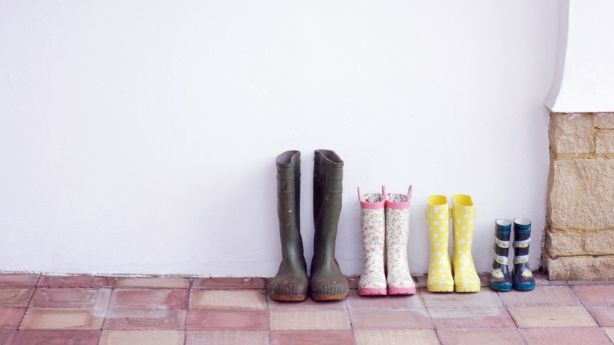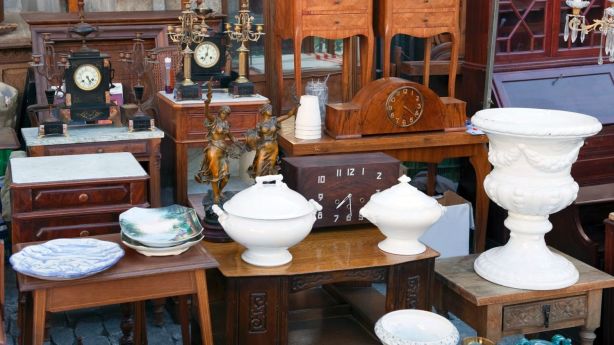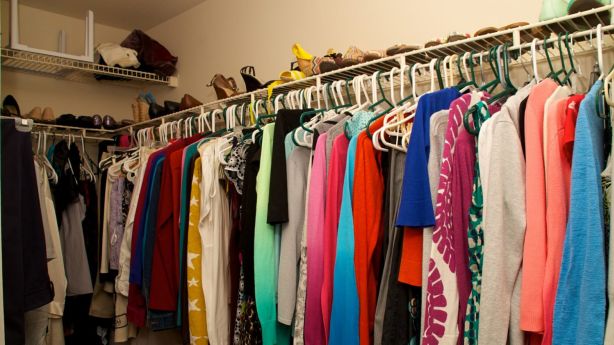Decluttering to Sell the Family Home
Glad we could share our expert tips with Nicole Frost of Domain Magazine
How to declutter a long-held family home before sale
Nicole Frost
Clearing out a home in preparation for moving – and in particular, downsizing – can seem like an overwhelming task.
Determining how long the decluttering process will take and where to begin can be quite the challenge.
Turning to family and friends to help is one option, as is engaging the services of a professional.

Domain spoke to three professional organisers to find out how to handle the big clean-out and help others downsize a lifetime’s worth of possessions.
How long does decluttering take?
Three to six months is a good amount of time to allow, according to Jo Carmichael from All Sorted Out, but it depended on the seller’s circumstances
The size of the house, number of occupants, any health issues and family commitments could all have an impact, she said.

Debbie Buckley, from Downsized Living, said while decluttering could be done quickly, a long lead time was much better.
“If push comes to shove, we could pack up a home in three to four days, but not a lot of downsizing will happen in that time,” she said. “If we can plan our attack, it’s certainly a lot more streamlined and stress free, rather than a forced change.”
- Related: Five decluttering mistakes everyone makes
- Related: Which homes are best for downsizers?
- Related: How to design your house for retirement
Should you declutter all at once?
Decluttering could be a two-stage process, said Ms Carmichael, with an initial pass on the home to get it ready for buyer inspections, followed by a major clean-out when it comes to finally moving.

This allows professional stylists to dress the property and prepare it for marketing photography.
The settlement period is when the big clean-up should occur, and opting for a longer settlement can help sellers feel less rushed.
Where do you start decluttering?
“Most people want to start near the front door,” Carmichael said, explaining that some clients were concerned about making a good first impression for potential buyers.

“But I start with the bedroom wardrobe. It’s all your stuff, it’s very personal.”
In some cases removing large pieces of furniture was the priority to make room for the stylist.
For Mary Harnan, from Allsorters, it’s about establishing what the client could deal with emotionally, and beginning there.
She said that for some clients she “started at the end” – throwing out everything they definitely didn’t need – whereas others preferred to put aside what they would definitely keep, then deal with the rest.
How can you make decluttering easier?
Ms Harnan said it was important to have a clear vision of the vendor’s future home, as that vision could act as a point of focus when the decluttering process became particularly challenging.
“I say, ‘Are you downsizing for you, or are you downsizing so you can find new homes for your dinner sets?’,” she said.
When it comes to helping parents or older relatives downsize, being patient and non-judgmental is essential.
“A lot of people think helping someone means going in and bossing people around,” Ms Harnan said. “The role is not to come in and criticise the house, it’s to help them pack it up.”
Which items are hardest to get rid of?
In Ms Carmichael’s experience, getting rid of artwork and books was the most difficult. “That’s one area where I try and put a limit on the number,” she said.
For Ms Harnan, the challenge was the emotional weight that came with some possessions.
“People often feel because something has been left to them they can’t get rid of it,” she explained. “Sometimes inheritances become burdens on people and they were never meant to be burdens.”
When it came to treasured keepsakes, she said it was important to identify what items were associated with positive memories, and to work out which of these could be kept without overwhelming the new home.
Ms Buckley said unwanted gifts also proved difficult. “Someone gave it to them, and they don’t want to hurt their feelings,” she said.
What do you do with unwanted items?
Family are the first port of call for keepsakes and furniture, with more valuable items being listed with auction houses, Ms Carmichael said.
Online marketplaces were also options, she said, but it was less about getting a good price for the item and more about finding a home where it would be appreciated.
“It doesn’t matter if it’s a few hundred dollars – it can still be reused,” Ms Carmichael said.
Ms Buckley said many items were given away, rather than sold.
“In the end, it’s about having it removed from your home, and that not costing you money,” she explained.
Ms Carmichael said that some items were donated to charity and only items that were damaged beyond reuse were thrown out.
Five tips for decluttering before selling
1. Clear out storage areas before commencing inspections, as neat, organised spaces help sell the property. “People will peek into cabinets, especially built-ins,” Ms Carmichael said. “They want to know – is there enough storage?”
2. Target the “usual suspects” that are easily disposed of, including extra blankets, rarely used kitchen appliances such as blenders and juicers, old pillows and spare coat hangers.
3. Use the “80:20” rule for clothing, meaning 80 per cent of what is kept should be functional, and 20 per cent can be favourites, according to Ms Harnan. “I use another f word for everything else – farewell,” she explained.
4. Sell or give away items online using platforms like Ebay, Gumtree, Facebook or Freecycle.
5. Take a break if discussions over certain items get too tense. Ms Harnan suggests simply stopping to have a cup of tea. “It’s not worth having an argument over an electrical appliance.”
